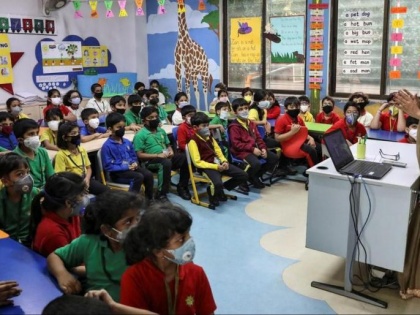State of India’s Environment 2021 report: Coronavirus pandemic to impact health of 37 crore children in India
By Lokmat English Desk | Published: February 26, 2021 04:09 PM2021-02-26T16:09:08+5:302021-02-26T16:12:00+5:30
Coronavirus pandemic is expected to increase children's mortality and disrupt their education, fears the Center for Science and Environment ...

State of India’s Environment 2021 report: Coronavirus pandemic to impact health of 37 crore children in India
Coronavirus pandemic is expected to increase children's mortality and disrupt their education, fears the Center for Science and Environment (CSE) from the State of India's Environment 2021 in its annual report. More than 60 environmentalists from across the country, including CSE Director General Sunita Narayan, released the report on Thursday evening.
According to the report, India is now ready to enter the epidemic generation. 37.5 crore children in the country (from infants to 14-year-olds) are likely to be exposed to the effects of long-term corona. These side effects can be seen in the form of low weight, low height and increase in mortality as their immune system is affected. It will also have adverse effects on education. More than 50 crore children have dropped out of school worldwide. More than half of them are children in India.
“Now is the time to investigate what coronavirus is going to leave for us in the long run,” said CSE Director General Sunita Narayan. A generation has been plagued by insecurity, malnutrition, poverty and poor educational attainment. At the same time, there is the challenge of using the environment for sustainable development. So that we can improve our livelihood and nutrition security in times of environmental challenges.
The CSE report said that corona infection in India could not be stopped even after the complete lockdown was implemented. A large part of the country's population lives in slums and densely populated areas. There is no clean drinking water available. Nor was there proper sanitization. In such cases, the chances of infection spread still looms.
Open in app